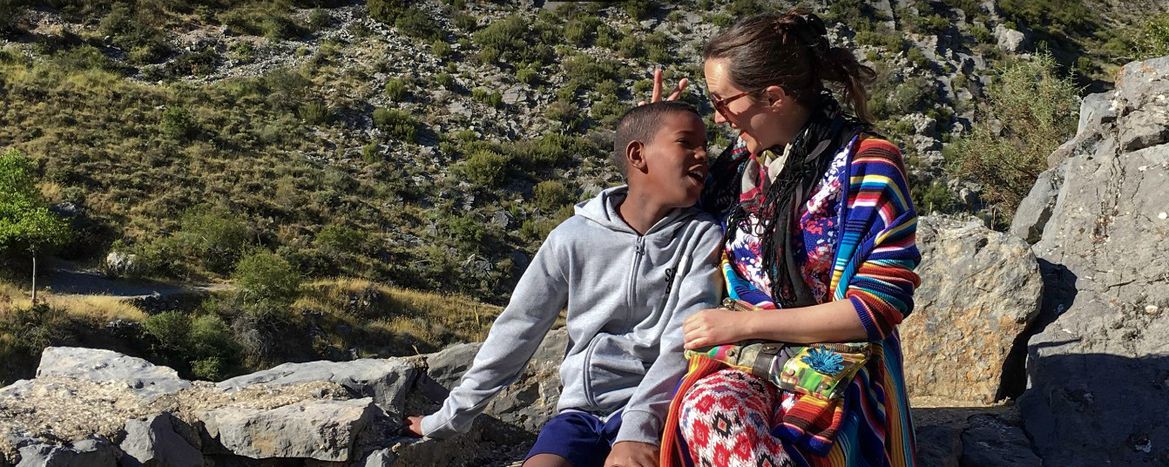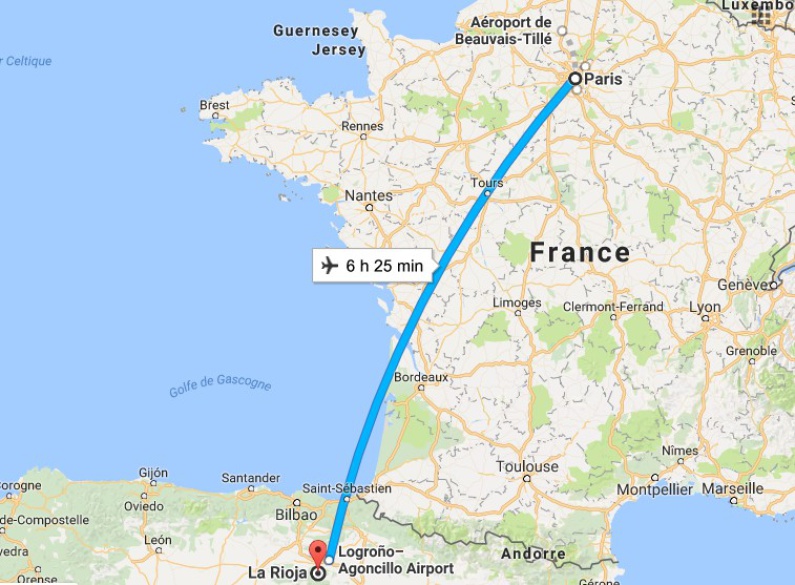
Martine: Mother for a summer
Published on
Translation by:
Emily SpencerThis summer, with the help of Spanish hosting programme Vacaciones en Paz, Martine became a parent for two months: welcoming a child refugee from Western Sahara into her home.
As Brahim arrives from the Algerian town of Tindouf, Martine is terribly nervous. It is the end of June and the bus from Pamplona, full of children, is six hours late. There was a sandstorm in the Sahara this morning. All of the other families who have been waiting in the Northern Spanish region of La Rioja have already collected their children. "I was extremely nervous and couldn't help thinking 'Oh my God, what have I gotten myself into?'"
Martine, who is half-Spanish, half-French and lives in Paris, decided against taking yet another holiday this summer. For a while now, she has considered inviting a child from a refugee camp in Western Sahara, to spend two months with her and her family in Spain. The Western Sahara conflict has, for the most part, been forgotten. When Spain relinquished the colony in 1975, Morocco laid claim to a vast portion of the region.
.
While working for the European Parliament, Martine had the opportunity to visit a refugee camp in Tindouf, which was established 40 years ago. It was there that she heard about the Spanish hosting programme Vacaciones en Paz (Holiday in Peace), which this year alone matched more than 1,000 children with Spanish families. The first days and nights with 10-year-old Brahim were an adjustment period; a time to get used to one another. There was some disagreement over whether he should he sleep in the bed or on the floor Martine and Brahim eventually reached a compromise: "This summer, I will sleep on the floor as you do in the Sahara, and you will sleep in a bed like I do at home."
As we Skype, Martine’s grandfather is cooking lunch - they have a very tight schedule. At 1 pm precisely, when Brahim returns from sports practice, the family eat dinner. Afterwards, everyone takes an obligatory afternoon siesta; the temperature climbs to above 40 degrees celsius daily. The family, who live in the Spanish region of La Rioja, have taken Martine under their wing; it isn’t easy to become a mum overnight. "I didn’t know what lay in store. The child arrived and he seemed so big to me. I wasn’t used to parenting. After 10 days I was physically exhausted."
The fact that her friend speaks Arabic was very useful for Brahim and Martine’s family in the early days; during moments of uncertainty, he could communicate with his mother tongue. Brahim only refuses to speak about his complicated family situation. "It doesn’t matter to us who your parents are, we are your Spanish family, we told him. And he calls me his Spanish mum," says Martine, beaming.
One rule was swiftly established: only Spanish is spoken at the dinner table and among family members. The most beautiful moment, Martine recalls, was rooted in normality; when Brahim went to sports practice unaccompanied. "He rang the doorbell when he came home for dinner and was so proud and happy that he had managed to complete the 200m trek alone." After two weeks, Brahim had even learnt to swim.
 Does Martine think this arrangement will work for everybody? "We need to be open and patient and refrain from projecting our ideology onto the child. They come to us with their own ideas. They make us ask questions about how we live: even simple things, like do we need to use a fork to eat?
Does Martine think this arrangement will work for everybody? "We need to be open and patient and refrain from projecting our ideology onto the child. They come to us with their own ideas. They make us ask questions about how we live: even simple things, like do we need to use a fork to eat?
"Brahim is accustomed to using his hands and that is what most people around the world do. My father insisted that he use a fork. So I asked: 'Papa when you go to the Sahara, do you use a fork or your hands to eat?' And he said: 'I use a fork.' So I replied: 'Then you are not playing the game. You consider your cultural model to be better than others. And I don’t agree with that.'"
Does Brahim eat with a fork or with his hands? "With both. That depends on whether you're eating spaghetti or not."
---
This article is part of our series on The Other Side of Summer: shining a light on people who've sacrificed their holidays to help others.
Translated from Martine: Mama für einen Sommer



